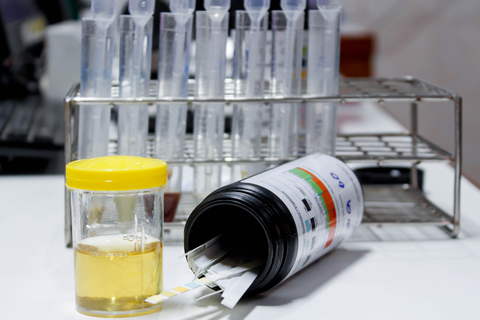Drug testing and parenting matters

In parenting matters before the Family Court system, there are often allegations of risk, including drug use by a parent or carer of a child. Drug use, including illicit substance abuse, can indicate a lack of parental capacity and risk of harm or actual harm to others, including children.
First and foremost, it is never acceptable for children to be exposed to illicit substance abuse or alcohol abuse, including use during time spent with a child. Nor is exposure to drug paraphernalia, the effects of illicit substance abuse or alcoholism acceptable at any time. Illicit substance use is taken very seriously by the Family Court.
What does the Family Court consider when assessing allegations of drug use?
The primary considerations of the Court include ‘the need to protect the child from physical or psychological harm from being subject to, or exposed to abuse, neglect or family violence.’ You can read more about this in our blog, “Parenting orders for spending time with the children”.
Where allegations of illicit substance use are made, parties can consent to undertake a test or the Court can order drug testing.
Test results (both hair strand tests and urinalysis tests) can be admitted into evidence in the Family Court.
Types of drug testing
Testing for illicit substance abuse can take the form of hair strand testing or urinalysis testing.
Hair strand testing
Hair strand testing has the benefit of testing any drug use over a longer period of time. For example, hair strand testing can detect illicit substance abuse or drug use in the preceding 3 months, 6 months, 9 months or 12 months.
However, the trade-offs include being more costly, less available, and results have a slower return time. Hair strand test results are usually returned in approximately 10-15 days.
A longer hair strand sample is required to test for longer periods of time. Samples of hair can be taken from both the head and the body.
Hair strand testing can detect for use of the following illicit and prescription substances (but not limited to):
-
- Cocaine;
- Opiates;
- Amphetamines (including Methamphetamines);
- PCP;
- TCH
- Benzodiazepines;
- Fentanyl;
- Synthetic; and
- Alcohol.
Urinalysis testing
Urinalysis testing covers a shorter period of use. However, it has the benefit of being less costly, more accessible and results have a shorter return time.
Urinalysis test results are usually returned within 24-48 hours.
Where can I get tested?
There are multiple testing options available in most major cities in Australia.
Brassets Group and The Drug Detection Agency both offer hair strand testing and urinalysis testing. Brassets Group have testing facilities in multiple locations across Australia, including; Canberra, Brisbane, Melbourne, Perth, Sydney and Parramatta. The Drug Detection Agency offer remote hair strand testing.
Urinalysis testing is widely available and can be completed at your local General Practitioner or Clinpath.
How much does drug testing cost, and who pays?
In circumstances where an Independent Children’s Lawyer is appointed or a party is represented by Legal Aid, a hair strand test and urinalysis test may be funded by Legal Aid. In that situation, there would be no out-of-pocket expense for the party undertaking the testing.
The cost of urinalysis testing on a private basis varies between $30-$132 and the cost of hair strand testing is $352-$2,904.
However, hair strand testing is variable based on the type of test that is undertaken. The variables include the length of the testing period (for example, 3 months, 6 months, 9 months or 12 months), type of illicit substances tested for and whether this is to include the detection of alcohol.
If the cost is not paid by Legal Aid, then it may:
- be shared between the parties; or
- the party undertaking the test may
- be ordered to pay; or
- the party requesting that the other party undertake a test may be ordered to pay.
Determining who is responsible for the costs associated with drug tests, varies on a case-by-case basis, if not agreed.
Testing positive to drugs during family law proceedings
Testing positive or failing to do Court ordered testing, is likely to have consequences.
Where testing is not completed (or delayed and avoided), the inference can be drawn that a party would have tested positive had they undertaken the test as requested or ordered.
Testing positive can mean protective measures are implemented for any time spent with children. Protective measures can include supervision, injunctions and further testing.
Orders can also be made for parents who test positive, to complete programs to assist with minimising and ceasing drug use, such as drug counselling or attendance at residential rehabilitation.
Contacting Meillon & Bright
Family Lawyers Perth & Sydney
The information contained in this article is of general nature and should not be construed as legal advice. If you require further information, advice or assistance for your specific circumstances, please contact Meillon & Bright Family Lawyers.

